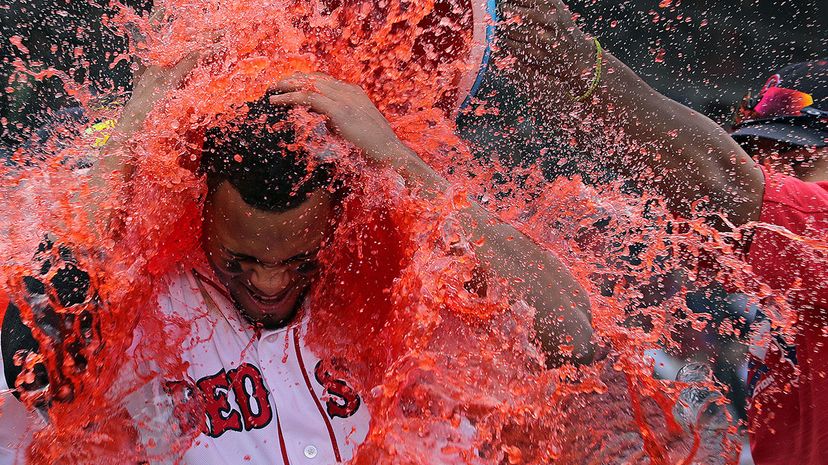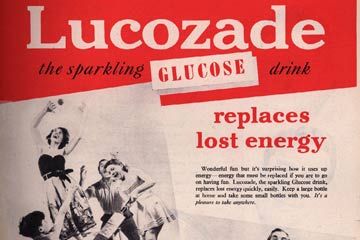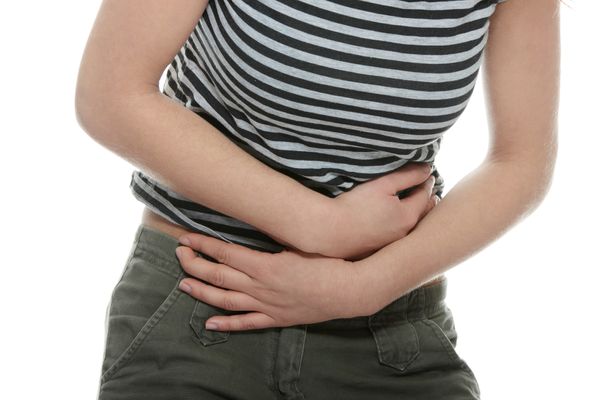
Feeling sluggish during your runs? In the near future, rather than reaching for an energy drink, you may opt to chug a concoction of your favorite athlete's gut bugs.
A team of microbiotic researchers affiliated with Harvard University Medical School plan to launch a company this fall that aims to find and purify the best bugs from the feces of elite athletes and then market them as probiotic supplements in pill, liquid or powder form.
Advertisement
The company in the works, fitBiomics, taps a swiftly expanding field of science analyzing the human microbiome. Every person hosts at least tens of trillions of microorganisms, according to a 2016 assessment published in the journal Cell. That amounts to about 5 pounds (2.3 kilograms) of bacteria and other microorganisms.
That news may be repellent to some, but for Jonathan Scheiman, the mass of microorganisms swarming inside our bodies smacks of a great business opportunity.
"Probiotics is a 60-million-dollar market and 90 percent of that market is derived from two types of bacteria essentially," says Scheiman, a microbiologist and post-doctoral fellow at the Wyss Institute, which was founded by renowned Harvard Medical School geneticist George Church. "We have trillions of bugs in our gut that are waiting to be discovered to disrupt the industry."
The trillions of microbes in each person's microbiome work in concert with the human body to fend off disease, promote digestion, facilitate fuel-burning, aid in recovery and even sharpen mental health and acuity. Scheiman, who once played Division 1 basketball at New York's St. John's College, believes that feeding the right mix of microbes to our guts could offer a new approach to enhancing athletic performance.
His idea is that rather than using sophisticated genetic sequencing technology to zero in on disease-causing microbes, why not hunt for microbes that help support elite athletes.
"We are using next-generation sequencing to understand what makes the most healthy and fit people in the world unique," Scheiman says. "We want to extract that information to develop nutritional products that may one day benefit all athletes or even just the general population."
To hunt down "performance probiotics," Scheiman has been in pursuit of elite athlete's poop for the past two and a half years. As he says, "Basically I collect a lot of sh**." He has recruited fecal donors from athletes participating in the Boston Marathon and at the Summer Olympics in Rio. He also has tapped donations from ultramarathon runners and Olympic Trial rowers.
By comparing prerace and postrace samples from the marathon runners, Scheiman and his team noted a spike in a type of bacteria that he believes helps in breaking down lactic acid, a byproduct of anaerobic activity. They isolated the bacteria and are currently feeding it to mice to see how it might influence the animals' lactic acid and fatigue levels.
Scheiman also has compared the athletes' microbiomes and found a type of bacteria common in ultramarathoners that appears to play a role in breaking down carbohydrates (critical during extremely long runs), that was not present in rowers. Other microbes identified by the team include ones that Scheiman believes help in energy metabolism, protein metabolism and anti-inflammation.
Scheiman says that he and his team have begun testing the safety and effectiveness of microbes isolated from his collection. They evaluate the mice to ensure the microbes pass through the digestive system swiftly, and they test for signs that the microbes are having the intended effect. So far, he says, "We haven't seen any risk of these microbes persisting in a way we don't want them to."
So far, Scheiman has stocked a large freezer with poop samples of around 50 athletes. Once fitBiomics launches in the fall, he hopes to expand that fecal library to include samples from at least 100 elite athletes. He even imagines partnerships that could feature products linked to well-known athletes by name (think "LeBron James Juice" or "Shalane Flanagan Fuel").
"We're talking to athletes now whom I'm sure you've heard of," Scheiman says. "When we launch in the fall, we'll do a lot more to build out those relationships."
Scheiman isn't the only scientist interested in athletes' poop. Lauren Petersen, a professional mountain bike racer and a postdoctoral associate at the Jackson Laboratory for Genomic Medicine in Farmington, Connecticut, has sampled cyclists' feces to determine what makes the top athletes' microbiomes unique.
In a paper recently published in the journal, Microbiome, Petersen and JAX Professor George Weinstock noted an abundance of two microbes in the top cyclists' microbiomes. One is thought to play a role in breaking down carbohydrates for fuel and the other could play a role in recovery.
Researchers at University College Cork in Ireland, meanwhile, isolated what they believe is a critical microbe from fecal samples of Irish rugby players. The bacterium has been linked with a lowered risk for obesity and systemic inflammation.
Another group, associated with the University of California at San Diego, is looking at how the microbiomes of surfers may be unique and perhaps encompass microbiomes associated with their local ocean environments.
Other groups are casting their microbiome nets even wider. The American Gut Project is a crowdsourced venture housed in the lab of renowned UCSD biologist Rob Knight. The group solicits fecal samples from people all around the world in an effort to build a comprehensive library of microbiome communities. The project includes samples from UCSD athletes but is more focused on improving overall science in the microbiome field than on enhancing athletic performance.
Embriette Hyde, project manager at the American Gut Project, points out that it can be very challenging to isolate the roles of individual microbes within the "complex tangle" of microbiomes. But, she says, the general concept of tinkering with the human microbiome to improve athletic performance makes sense.
"Athletes perform better when inflammation is lower, athletes perform better when they have better access to nutrition, they perform better when they just feel better in general," she says. "I think there's enough evidence out there that those things can be altered through the microbiome."
For now, Scheiman is focused on launching fitBiomics in the fall and expanding his growing frozen fecal collections. As he says, "The more athletes we recruit to our team and the more microbiomes we analyze, the more applications and discoveries we'll make."
Advertisement

